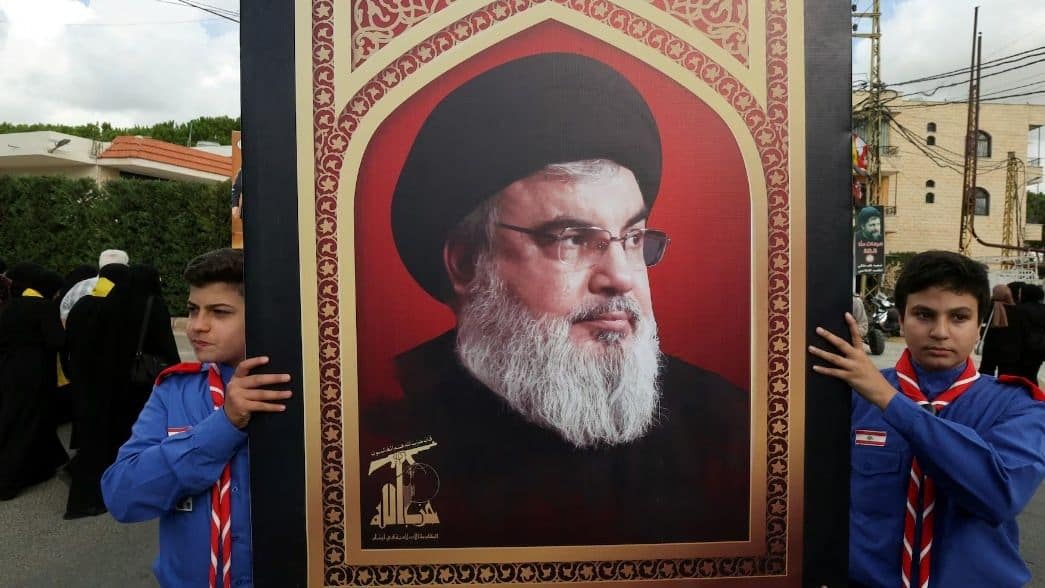Hezbollah chief Nasrallah agreed to ceasefire before death: Lebanon minister
What's the story
Hezbollah's chief, Hassan Nasrallah, had agreed to a 21-day ceasefire with Israeli Prime Minister Benjamin Netanyahu shortly before his death in an Israeli airstrike in Beirut last week.
This information was disclosed by Lebanon's Foreign Minister Abdallah Bou Habib during an interview with CNN.
The temporary ceasefire was initiated by President Biden, French President Macron, and other allies following a meeting at the UN General Assembly last month.
Accusations and agreement
Ceasefire followed Hezbollah's accusations against Israel
The ceasefire was proposed after Hezbollah accused Israel of causing multiple explosions of pagers and walkie-talkies used by the group in mid-September.
"We agreed completely. Lebanon agreed to a ceasefire but (after) consulting with Hezbollah," Habib stated.
The Lebanese House Speaker, Nabih Berri, consulted with Hezbollah before informing the US and France about the agreement, reports said.
Both countries confirmed that Netanyahu also agreed to the ceasefire terms set by Presidents Biden and Macron.
Tragic end
Nasrallah's death followed ceasefire agreement
White House Senior Advisor Amos Hochstein was scheduled to travel to Lebanon to negotiate the ceasefire deal, as per Habib.
"They told us that Mr Netanyahu agreed on this and so we also got the agreement of Hezbollah on that and you know what happened since then," Habib said.
On September 27, Nasrallah was killed in a large-scale Israeli airstrike on Hezbollah's headquarters in Dahiyeh, a southern Beirut stronghold of the group.
Death details
Nasrallah's death confirmed, cause revealed
Nasrallah's death was first announced by Israel and later confirmed by the Iran-backed group.
According to Reuters, there were no direct wounds on Nasrallah's body. The cause of death was determined to be blunt trauma resulting from the force of the blast.
A day prior to his death, a joint statement issued by several countries and organizations had called for a 21-day ceasefire "to give diplomacy a chance to succeed and avoid further escalations across the border."
Ceasefire rejection
Netanyahu rejects ceasefire, continues attacks
Despite the ceasefire agreement, Netanyahu rejected the deal and declared that Israel would continue to target Hezbollah strongholds in Lebanon.
When asked about the diminishing influence of the US in the region, Habib stated that Washington was "always important in this regard."
He added, "I don't think we have an alternative. We need the US's help. Whether we get it or not, we are not sure yet, but [the] US is very important, vital for the ceasefire to happen."
Ground offensive
Israel launches ground offensive following Nasrallah's death
Following the successful airstrike that resulted in Nasrallah's death, Israel launched a limited ground offensive in Lebanon.
Since then, both the Israeli military and Hezbollah fighters have been engaging in strikes against each other.
The cross-border fighting has resulted in over 1,900 deaths and more than 9,000 injuries within almost a year, with most casualties occurring in the past two weeks as per Lebanese government statistics.
Dual conflict
Israel's ongoing conflict with Hamas amid Lebanon offensive
The cross-border fighting between Israel and Lebanon coincides with Israel's ongoing conflict with Hamas in Gaza.
This conflict began on October 7 last year when the Palestinian group launched a surprise attack on Israel.
The simultaneous conflicts have put additional pressure on the region, exacerbating tensions and leading to increased violence and casualties.
